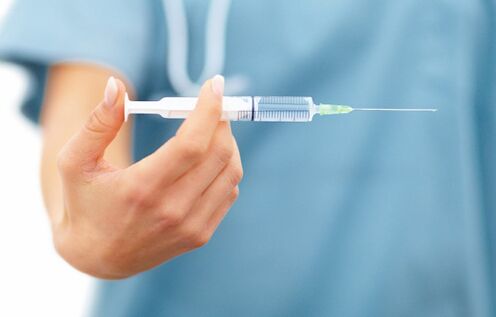Prostate inflammation has recently been diagnosed more and more frequently. But if earlier the disease was detected in men over the age of 40, today the pathology often occurs in young people. The causes may be infections, viruses, low immunity, inactive lifestyle, and so on. Accordingly, medications for the treatment of prostatitis will be diverse. You can choose the most effective only with your doctor after a thorough examination.

Types of drugs
All drugs are presented in various forms of release. With prostatitis in men, injections, tablets, suppositories, ointments and instillation solutions can be used. In the acute phase, injections are prescribed, while medications for the treatment of chronic prostatitis are most often presented in the form of tablets and capsules. Among them, antibiotics and anti-inflammatory drugs are mandatory. The first includes the most effective drugs such as fluoroquinolones, penicillins and tetracycline. If a specific infection is identified, other antibiotics may be prescribed.
Anti-inflammatory drugs are used in any form of pathology, that is, both in the presence of bacteria and in its absence. Their main goal is to relieve inflammation and improve body function. You can also take painkillers and vitamins in tablet form. But immunomodulators and drugs to accelerate regrowth are more often produced in the form of injections. Such injections are often prescribed outside the acute stage to restore prostate tissue.
In addition to the above, suppositories and creams for rectal administration are used in the treatment of men. This is the simplest form that allows you to act directly on the focus of inflammation. In suppository form, there are anti-inflammatory drugs, painkillers, antibiotics, and so on.

In some cases, injections may be needed. The drug is injected into the urethra in an amount of not more than 5 milliliters.
The choice of drug form is carried out only together with the doctor based on the stage of pathology and its characteristics. It is not possible to replace injections with tablets or suppositories on their own.
The main principles of treatment
For the desired effect, it is necessary to use complex treatments. You should not be limited to just antibiotics or painkillers. As a rule, the scheme for acute processes includes the following drugs:
- antibiotics to eliminate pathogenic flora;
- anti-inflammatory drugs;
- painkillers and antispasmodics for severe pain;
- suppositories to relieve local inflammation.

In addition to the above, drugs of other groups can be used, for example, hormonal agents, alpha blockers, immunomodulators, muscle relaxants, and so on. Each drug has its own duration of use and dosage. They are determined based on the nature of the agent and its effects.
Antibacterial agents are mandatory when bacterial prostatitis is detected in men. They are taken from a week to two months, for example, in chronic form. With severe inflammation, injections can be used, but tablets are still more frequently prescribed. Choices are made based on the available flora and individual characteristics of the patient.
Anti-inflammatory drugs are also used for any form of prostatitis. They will help relieve inflammation even with the presence of stones in the prostate. The admission period is usually no more than 14 days, but longer courses may be used.
Painkillers are used only in the presence of severe pain. As a rule, a three -day intake in the acute phase is sufficient. Both tablets and injections can be used. With the presence of chronic processes in men, there is no need for these drugs.

Alpha blockers, as well as painkillers, are used for 2-3 days in the acute process. The same goes for antispasmodics.
At the same time, there are drugs that are taken for a long time, regardless of the stage of pathology. First of all, vitamins, microelements for men should be taken regularly, and immunomodulatory courses are performed twice a year. Hormones are used only as prescribed by a doctor after a thorough examination.
Throughout life, you can periodically do courses using herbal preparations and recipes of traditional medicine. They will help normalize the work of the glands and strengthen the immune system, thus reducing the risk of relapse.
Medicine name
Among the various types of drugs, one can especially distinguish those that are highly effective and have proven themselves in men with acute or chronic prostatitis. Often, antibacterial agents of the penicillin group are prescribed, which cope well with a large number of bacteria and do not cause side effects.
In addition, other drugs can be used, for example, penicillin in the form of injections, tetracycline in tablets, antispasmodics, such as. In addition, there are many analogues, so only a doctor can tell the name of the appropriate drug.
Along with antibacterial drugs, drugs are used that have clear antibacterial and anti-inflammatory properties. In addition, it normalizes the outflow of urine and blood circulation in the tissues. Promotes the absorption of blood clots and stimulates the work of muscle tissue. Used in chronic forms of the disease. It can also be prescribed after surgery.
Other drugs
In addition to the above, other medications can be used for prostatitis in men. So, homeopathic remedies are prescribed, able to relieve inflammation and improve blood circulation in the tissues. At the same time, swelling is reduced, cell nutrition is improved, urination and secretions become normal. It is used only as part of the complex. It can be taken for a long time, up to six months. The drug is easily tolerated, without any side effects.
Natural preparations can be prescribed, the composition includes only plant components, which makes the product safe. Allows you to remove inflammation quickly and normalize glandular function.
All medications for the treatment of men should be prescribed only by a doctor after examination. Each drug has its own indications and characteristics for use. Improper use can lead to deterioration of the condition and the development of side effects.






























